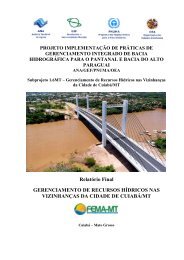Rt€@lll
Rt€@lll
Rt€@lll
Create successful ePaper yourself
Turn your PDF publications into a flip-book with our unique Google optimized e-Paper software.
-8<br />
"The Pacific way is coneerned that 'nobody gets left out ' which is another<br />
way of saying that the Pacific way cares abou! lhe individual. And if nobody ie<br />
left out, this nreans that everybody is in - which is what democracy is all abouL"<br />
The definition is not about folklore, it is about the perennial struggle to lend a hurnan<br />
face to the political process.<br />
Tfre "Pacific Way" undoubtedly did a great deal to capitalize on these feelings of<br />
solidarity through the new Pacific. It was a privilege to work closely with those statesment<br />
euch as Ratu Mara, who had grasped the idea of a rnoment in history and related it to the<br />
day-to-day management of regional issues. For sheer persistence, me could not go beyond the<br />
outstanding Pacific leader whose contribution to regional diplomacy wes overshadowed by the<br />
more sensational aspects of his domestic political career. I refer to the late Sir Albert Henry.<br />
When the historians work over the record of the 1970s, I would expect some of his speeches<br />
to be singled out as the encapsulation of Lhe direction in which the Pacific was moving.<br />
It is good to see Matre Tupouniua taking his experience back to the Bureau a it begins<br />
its second decade, and I would like to acknowledge help provided by SPEC in the preparation<br />
of this peper.<br />
The Pacific Context<br />
For the sake of geographical precision, New Zealand is included in the "Prcific Island<br />
Context". Like Papua New Guinea it occupies some of the largest islands, but the fact<br />
remains that it shares the island situation. Indeed, traditional Weslern concepts of national<br />
development can be enriched by the mutalions whieh are emerging in various models of<br />
development adopted around the Pacif ic. New Zealand, which in one sense has been a<br />
generous contributor to this process, now has the opportunity to see which sspects could lend<br />
breadth to its own view of development, which slill tends Lo be two-dimensional.<br />
The political changes of the last decade have resulted in a qreater tendency to look at<br />
development in the Pacific not just in terms of lhe Forum mernbers, or even South Pacific<br />
Commission members, but in a wider pan-Pacific perspective. This has meant that the Pacific<br />
Islands ane seen more and more in nelation to the Pacific Basin, the Pacific Rim, or whaLeven<br />
Lerm might be current to describe the setting of our hemisphere. Geographical precision is<br />
not of concern; what is important is the fact that this is the area of lhe world which is<br />
generally seen as enjoying more favourable economic prospects than elsewhere.<br />
Moves towards a Pacific Canmunity are expected to increase, and a more formal<br />
grouping may emenge before the end of the century. Looking at the characteristics of the<br />
region, and the range of countries which might be included, iL is useful to point out that the<br />
North/South problem does look soluble in the Pacific region. There are certainly a nr.rmber of<br />
options available if the coun[ries of the rim decide to join wilh the oceanic states [o find<br />
joint solutions. This is in stark contrast with the dimension of the North/South issue<br />
elsewhere, where mounting evidence shows that the range of development options and<br />
regional solutions is narnow, and that the basis f or political accommodation is of ten<br />
non-existent.<br />
The political economy of the Pacific on the other hand does hold out some prospect<br />
that states with sironger economies will see zufficient joint interes[ in strateqic termsr to<br />
accept the relatively low "insurance premium" which wi ll maintain the development of weaker<br />
island economies. The collective purpose would be to exclude mischievous involvement by<br />
others, and achieve a consolidation of regional solidarity in the Island group (which hss<br />
already suffened continuing division, particularly in the aftermath of colonialism). Models for<br />
the "insurance premium" can be seen in some of the posl-colonial bountyr including that<br />
offered by New Zealand to the Cook Islands, Niue and Tokelau. The guestion that remains is,<br />
to what degree can these separate premiums be [ranslated into a regional policy.<br />
One of the prerequisites, if this is to happen, will be the maintenance by the Island<br />
states of their own commitment to regional co-operation. Progress over the last ten years has<br />
been steady, but it has lurched at times. Mmt of those involved in the effort io build<br />
regional cohesion would agree that much rnore dramatic nesult.s could have been achieved if<br />
on occasions the perception of individual interest (and the whims of some of the Island<br />
leaders) had given way to the nrore difficult but more enduring regional solution.


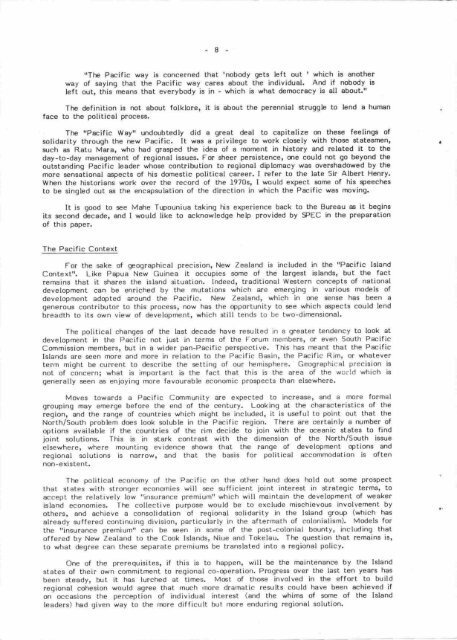
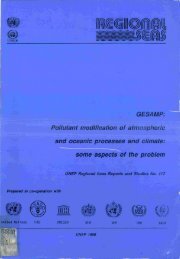
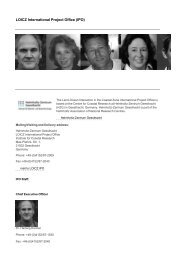
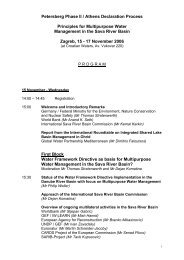
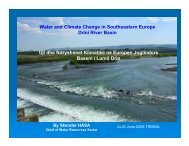
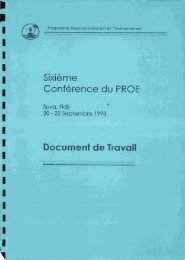


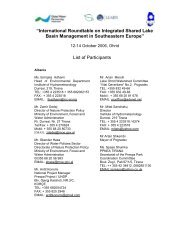

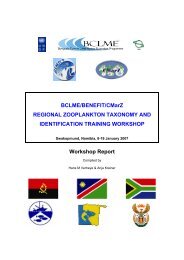
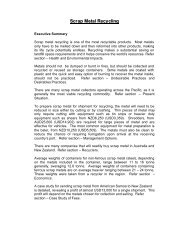
![R]€@lll](https://img.yumpu.com/7594335/1/175x260/reurlll.jpg?quality=85)
